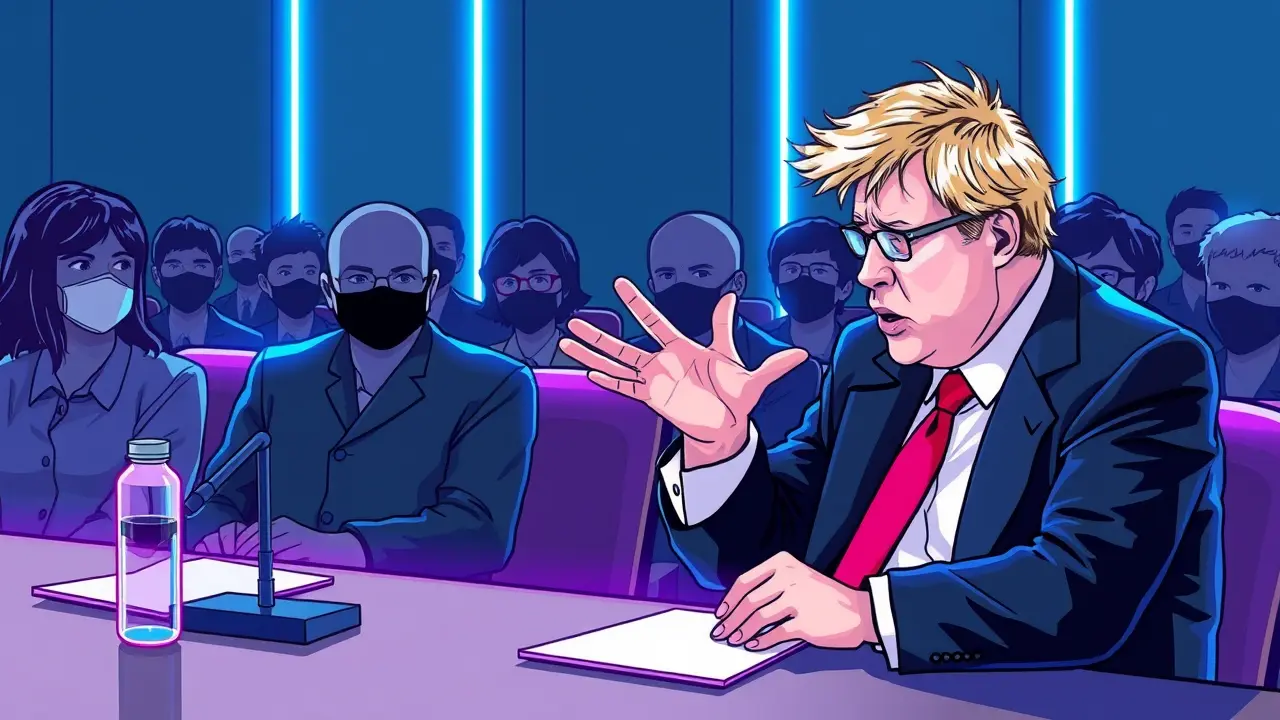- News
- courts-investigations
- Boris Johnson rejects claim his government did not prepare for pandemic school closures
Boris Johnson rejects claim his government did not prepare for pandemic school closures
In a striking display of political theater before the UK's Covid-19 inquiry, former Prime Minister Boris Johnson forcefully rebutted allegations that his government was caught flat-footed by the necessity of pandemic school closures, a moment that recalls the gravity of a Churchillian war room assessment more than a routine policy review. Johnson, with the weight of historical scrutiny upon him, framed the monumental decision to shutter educational institutions as a societal trade-off of historic proportions, asserting that children bore a 'huge, huge price' in a collective sacrifice to shield the broader population, a sentiment that echoes the difficult calculus leaders have faced throughout history, from wartime evacuations to previous public health crises.This testimony stands in direct contradiction to that of his former education secretary, Gavin Williamson, who previously told the inquiry he received 'no suggestion' that the Department for Education (DfE) needed to formulate a concrete plan for mass closures, thereby exposing a potentially catastrophic fissure in the government's pre-pandemic planning apparatus. A veteran analyst cannot help but draw parallels to historical inquiries where the preparedness of the state is put on trial; much like the post-mortems following the 2008 financial crash or the lead-up to conflicts, the central question revolves not around the crisis itself, but the foresight and contingency planning—or lack thereof—that defined the initial response.Johnson’s assertion that it would be 'amazing' if the DfE had failed to grasp the need for such plans is a classic political maneuver, attempting to shift the frame from a systemic failure of his administration to a presumed failure of a specific department, a tactic often seen when former leaders seek to manage their legacies. The inquiry, therefore, becomes less about a simple factual discrepancy between two ministers and more a profound examination of the British state's resilience and the chain of command during a peacetime emergency unlike any other.One must consider the broader context: for decades, the UK’s pandemic preparedness plans, such as the much-discussed 'Cygnus' exercise, had primarily focused on influenza, which typically sees less disruptive social distancing measures for the young, leaving a significant strategic blind spot for a coronavirus scenario that demanded school closures as a primary non-pharmaceutical intervention. The consequences of this gap, whether born of departmental inertia or a failure of directive from the top, are now etched into a generation of children through learning loss and developmental delays, a cost that economists and sociologists will be quantifying for years to come.Expert commentary from public health officials and educationalists suggests that even with a plan, the execution would have been fraught, but the absence of one guaranteed chaos, leading to the ad-hoc, rolling closures and the disastrous exams algorithm that further eroded public trust. The testimony of these two key figures presents the inquiry with a classic 'he said, he said' scenario, but the analytical insight points to a deeper, more troubling reality of fragmented governance where siloed departments operated without a unified, proactive strategic command, a lesson that future governments on both sides of the Atlantic must heed. The political ramifications for Johnson are significant, as this inquiry shapes the historical narrative of his premiership, defining him either as a leader forced to make impossible choices with flawed tools, or as one whose government was negligently unprepared for an inevitable crisis, a dichotomy that will influence conservative politics and public policy for a generation.
It’s quiet here...Start the conversation by leaving the first comment.
© 2025 Outpoll Service LTD. All rights reserved.
